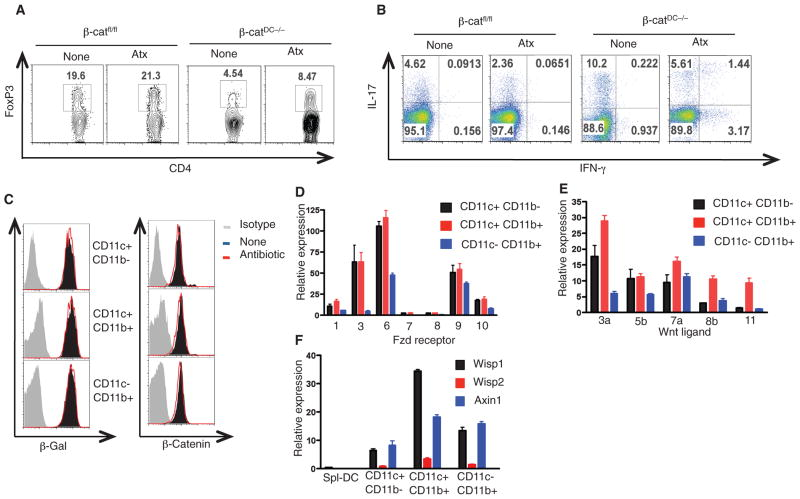Activation of beta-catenin in dendritic cells regulates immunity versus tolerance in the intestine.
Dendritic cells (DCs) play a vital role in initiating robust immunity against pathogens as well as maintaining immunological tolerance to self antigens. However, the intracellular signaling networks that program DCs to become tolerogenic remain unknown. We report here that the Wnt-beta-catenin signaling in intestinal dendritic cells regulates the balance between inflammatory versus regulatory responses in the gut. beta-catenin in intestinal dendritic cells was required for the expression of anti-inflammatory mediators such as retinoic acid-metabolizing enzymes, interleukin-10, and transforming growth factor-beta, and the stimulation of regulatory T cell induction while suppressing inflammatory effector T cells. Furthermore, ablation of beta-catenin expression in DCs enhanced inflammatory responses and disease in a mouse model of inflammatory bowel disease. Thus, beta-catenin signaling programs DCs to a tolerogenic state, limiting the inflammatory response.
Authors
Santhakumar Manicassamy; Boris Reizis; Rajesh Ravindran; Helder Nakaya; Rosa Maria Salazar-Gonzalez; Yi-Chong Wang; Bali Pulendran
External link
Publication Year
Publication Journal
Associeted Project
Microbiology or Immunology
Lista de serviços
-
Is the gut microbiome key to modulating vaccine efficacy?Is the gut microbiome key to modulating vaccine efficacy?
-
Toxicogenomic and bioinformatics platforms to identify key molecular mechanisms of a curcumin-analogue DM-1 toxicity in melanoma cells.Toxicogenomic and bioinformatics platforms to identify key molecular mechanisms of a curcumin-analogue DM-1 toxicity in melanoma cells.

